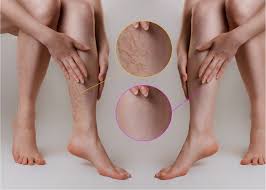What is a vein specialist called in medical terms?

If you’ve ever wondered, what is a vein doctor called in medical terms?, you’re not alone. Many people struggle to find the right professional when dealing with issues like varicose veins, spider veins, or chronic venous insufficiency. In medical terms, a vein specialist is most commonly referred to as a phlebologist. However, depending on their training and scope of practice, a vein doctor may also be a vascular surgeon or interventional radiologist.
Each of these specialists is trained to diagnose and treat vein-related conditions. While phlebologists focus exclusively on vein care, vascular surgeons manage both veins and arteries. Interventional radiologists specialize in minimally invasive procedures, including image-guided vein treatments.
When searching online for help, patients often use phrases like “vein treatment near me” to locate qualified professionals. Understanding exactly what a vein doctor is called helps ensure you connect with the right type of specialist for your condition.
What Qualifications Should a Vein Specialist Have?
Not every medical doctor can treat vein conditions. To be a reputable vein specialist, a physician must undergo specialized training in venous diseases. Phlebologists usually have a background in dermatology, internal medicine, or general surgery before acquiring additional certifications in vein care.
Look for certifications from reputable boards such as:
- The American Board of Venous & Lymphatic Medicine (ABVLM)
- The American Board of Surgery
- The American College of Phlebology (now the American Vein and Lymphatic Society)
These credentials ensure your doctor has the right expertise. When you search “vein treatment near me,” always review the credentials listed on a clinic’s website to confirm you’re seeing a trained vein expert.
Why Should You See a Vein Specialist?
You should consult a vein specialist if you experience symptoms such as:
- Bulging or twisted veins (varicose veins)
- Swollen or heavy legs
- Leg cramps, especially at night
- Discoloration or hardening of the skin near your ankles
- Non-healing leg ulcers
These are all signs of chronic venous insufficiency or other venous disorders. While general practitioners can provide a basic assessment, only a vein doctor (phlebologist, vascular surgeon, or interventional radiologist) can offer a proper diagnosis and targeted treatment.
By searching “vein treatment near me,” you can schedule an evaluation with a local expert who understands the complexities of vein disease.
What Services Do Vein Specialists Provide?
Now that you know what a vein doctor is called, you may be wondering what treatments they offer. Today’s vein treatments are minimally invasive and performed on an outpatient basis. Some of the most common procedures include:
- Sclerotherapy: A solution is injected into spider or small varicose veins to make them collapse and fade.
- Endovenous Laser Therapy (EVLT): Laser energy seals off faulty veins from the inside.
- Radiofrequency Ablation (RFA): Uses heat generated by radio waves to close damaged veins.
- Ambulatory Phlebectomy: Small varicose veins are removed through tiny skin punctures.
- VenaSeal: A medical adhesive is used to close diseased veins.
These techniques are effective, safe, and require minimal downtime. Your specialist will recommend the right procedure based on your vein condition and overall health.
How Can You Find the Best Vein Treatment Near You?
If you’re looking for personalized care, your first step should be searching “vein treatment near me” online. Here are tips to help you choose the right provider:
- Check Certifications: As mentioned earlier, confirm that the doctor is certified by the ABVLM or similar organizations.
- Read Reviews: Patient testimonials can give insight into the quality of care.
- Ask About Technology: The best vein clinics use modern diagnostic tools like duplex ultrasound and provide minimally invasive treatments.
- Visit the Clinic: A reputable vein treatment center will offer a clean, professional environment and take the time to explain your treatment plan.
Choosing a specialist who understands what a vein doctor is called and has experience treating venous conditions will improve your outcome and satisfaction.
What Conditions Do Vein Specialists Commonly Treat?
Vein doctors diagnose and treat a wide range of venous conditions. These include:
- Spider Veins: Tiny red or blue veins on the skin’s surface.
- Varicose Veins: Enlarged, twisted veins that can cause pain and swelling.
- Deep Vein Thrombosis (DVT): A dangerous condition involving blood clots in deep veins.
- Chronic Venous Insufficiency (CVI): Poor blood flow back to the heart, leading to leg ulcers and other issues.
- Leg Ulcers and Skin Changes: Often linked to long-standing vein disease.
By visiting a qualified specialist, you can prevent these conditions from worsening. Early intervention with vein treatment near me searches can help you get relief before complications arise.
How Do Vein Specialists Diagnose Vein Conditions?
A good vein doctor won’t jump straight to treatment. Instead, they start with a thorough evaluation, including:
- Medical history and physical exam
- Duplex ultrasound imaging to evaluate blood flow and vein valve function
- Risk factor assessment (e.g., family history, occupation, pregnancy, or weight issues)
This comprehensive approach helps the doctor determine the underlying cause of your symptoms and the best treatment path.
When you search “vein treatment near me,” look for clinics that offer in-house diagnostics. This ensures a faster, more accurate treatment plan.
When Should You See a Vein Specialist?
Don’t wait until your symptoms become severe. You should book an appointment with a vein doctor if you notice:
- Aching or heavy legs at the end of the day
- Visible bulging veins
- Discoloration around the ankles
- Sores or ulcers that don’t heal
- Family history of vein disorders
By seeing a vein doctor early, you can manage your condition with simple, non-surgical solutions. Use the phrase “vein treatment near me” to find experts who can help preserve your vein health before major issues arise.
Final Thoughts: What Is a Vein Doctor Called, and Why Does It Matter?
To recap, if you’re asking “what is a vein doctor called in medical terms?”, the answer is typically phlebologist, though vascular surgeons and interventional radiologists may also provide vein care. Knowing this terminology helps you choose the right provider for your needs.
When looking for treatment, search “vein treatment near me” to locate qualified, experienced professionals in your area. The sooner you act, the more options you’ll have to treat your condition effectively.
Healthy veins play a vital role in your circulation. Trust a trained vein specialist to help you regain comfort, confidence, and proper vascular function—without unnecessary surgery or long recovery times.



